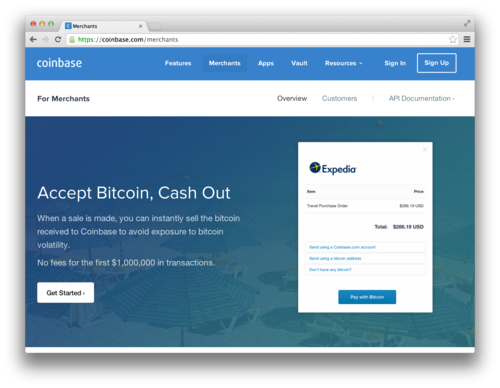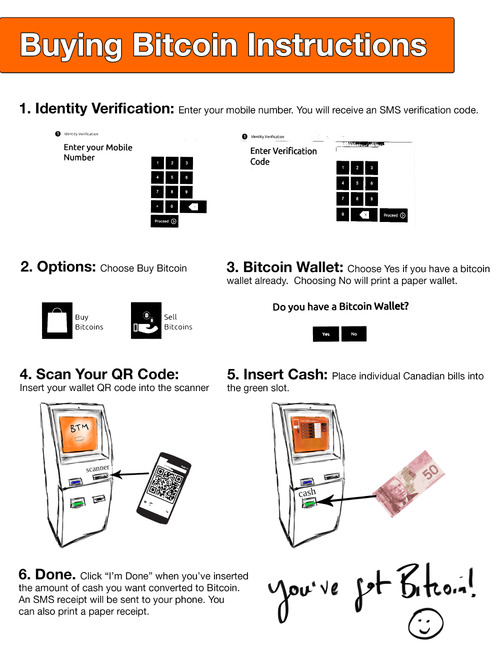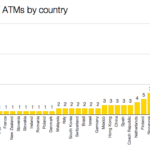How Dell, Expedia and Others Accept Bitcoin Payments

Screenshot of Coinbase merchant landing page.
—-
Dell recently announced that they are accepting Bitcoin as a means of payment. Expedia announced last month they’ll start rolling out Bitcoin payment for their services. How are these companies implementing Bitcoin payments online?
Dell and Expedia use Coinbase.com. Coinbase is a popular US service for buying, selling and storing Bitcoins (they’re an exchange and offer a wallet). Unfortunately Coinbase is not available for Canadian customers.
NewEgg and TigerDirect (online electronics stores) use BitPay.com. BitPay is targetted at developers rather than business people. BitPay is like Stripe for Bitcoin. BitPay can be used by Canadian businesses.
The three main Canadian exchanges have their own merchant integration services (with varying ease of use):
- CaVirtEx (the largest exchange in Canada)
- QuadrigaCX (here’s a video aimed at merchants that they published today: https://www.youtube.com/watch?v=rjkltZ_C6rU)
- Vault of Satoshi (the most complicated API)
Stripe, a popular credit card payment integration service, has announced that they will soon offer a Bitcoin payment method but it’s currently in beta.
How to buy Bitcoins at Decentral
At Decentral we have a convenient bitcoin teller machine that makes purchasing bitcoin easy. To use the machine at our location, simply follow these steps:
- Click "Start" on the main screen when you are ready to begin. The price per bitcoin displayed at this point will be your purchase price. Note, of course, that you can always buy fractions of a bitcoin, but the minimum amount per transaction is $5 Canadian.
- Enter your phone number and then the verification code that you receive by SMS message.
- Choose “Buy Bitcoin”
- Next, choose “Yes” if you already have a bitcoin wallet. Choose “No” if you would like the machine to print a paper wallet.
- Place the QR code for your wallet’s public receive address in the scanner; it’s the top-right horizontal slot.
- Start inserting your Canadian cash into the bill acceptor, which will have a green light activated to indicate that it is ready.
- After you’ve inserted your individual bills, click “I’m Done” to complete the transaction.
- Congratulations, you now have bitcoin! A confirmation of the transaction will be sent via SMS to your phone. You can also print a paper receipt for your records.
Note that the machine will read only the QR code for your public bitcoin address; you cannot type the address in manually. Fortunately, all bitcoin wallet systems on your phone or computer are able to display a QR code for the wallet’s public receive address.
If you have any questions about the process, please come by Decentral and we’ll help you get started. 64 Spadina Ave. Toronto, ON. Canada.

What You Need to Know About the New Canadian “Bitcoin Law”
This post was written by Addison Cameron-Huff, a tech lawyer who works for Decentral. Addison is a lawyer but he is not your lawyer. You should seek legal advice before acting on any of the legal information presented in this article.
What’s Happened?
A Canadian federal law affecting Bitcoin passed last Thursday. Bill C-31, an omnibus budget act, contains provisions that will eventually bring certain Bitcoin businesses into Canada’s anti-money laundering regime. The new rules are not in effect yet.
Who Will Be Affected?
In short: anyone engaged in the business of buying or selling of virtual currencies and who has Canadian customers.
Any person or business who “ha[s] a place of business in Canada and that [is] engaged in the business of providing … the following [service]: … dealing in virtual currencies”.
Also affected: any person or business who “do[es] not have a place of business in Canada, that [is] engaged in the business of providing at least one of the following services that is directed at persons or entities in Canada, and that provide those services to their customers in Canada: … dealing in virtual currencies.”
Citations for above: Bill C-31, s. 256(2): http://www.parl.gc.ca/content/hoc/Bills/412/Government/C-31/C-313/C-313.PDF (pgs. 164-165).
What is “Dealing”?
Dealing isn’t defined in the act but generally means buying or selling. Coupled with the requirement that someone be “in the business of”, it’s likely that this law won’t affect people buying or selling for personal use or merchants using Bitcoin.
The law can be expected to be similar to how car dealing works: selling your own car doesn’t require a license but running a car dealership does.
What is “Virtual Currency”?
The new law doesn’t define “virtual currency”. The definition will be in the regulations that will eventually be passed (see below).
What Will the Rules Be?
Anyone covered by the new rules will have to register as a “Money Services Business” (MSB) and comply with the anti-money laundering regime (please see previous Decentral blog posts).
Probably the most significant MSB rule is that companies may only do business in amounts up to a certain threshold before requiring that customers provide identification. The threshold will likely be either $1000 (current MSB rules for the money transmission/remittance category) or $3000 (foreign exchange category).
The exact rules won’t be known until the corresponding regulations are published (here). The final rules will probably be preceded by a notice of proposed regulation posted in Part I of the Canada Gazette.
When Will the New Rules Take Effect?
The new rules won’t take effect until the government declares them in effect.
Section 298(3) of the law states that s. 256(2) (the key Bitcoin-regulating part of the law) will “come into force” (become a law people are required to follow) “on a date to be fixed by Order of the Governor in Council”.
What is an Order in Council? An Order in Council is one of the pathways by which laws can come into force. They are published on the Orders in Council site (hard to navigate/monitor) and in the Canada Gazette Part II (easier to monitor, it’ll be published as a “Statutory Instrument” [e.g. “SI/2014-XXX”]). The only way to know that an order has been published is to check every day and see if something’s been published.
What Should Bitcoin Businesses Do?
Find a lawyer and attempt to understand how money laundering rules apply to your business and what the registration/compliance steps are.
FINTRAC (the regulatory agency for anti-money laundering) offers some guidance for money services businesses on its website: http://www.fintrac-canafe.gc.ca/msb-esm/intro-eng.asp.
Registering as an MSB is free and quite straightforward. Compliance is complicated and will likely affect involve hiring a lawyer.
What’s Going to Happen?
- Canadians may be banned from some online virtual currency services. Although Canada is a base for many Bitcoin businesses, Canadians are a small market. The money laundering rules have such severe penalties that probably services will just not allow registration by Canadians rather than attempt to comply.
- Some Bitcoin businesses may have business models that aren’t compatible with the new regulatory regime. They’ll have to adapt their model to the new environment.
- Small businesses may not be able to afford the compliance costs. This may lead to consolidation in the industry.
- The new regulatory regime may provide a big boost to the Canadian Bitcoin industry. Canada will soon have the world’s first nationally regulated virtual currency industry.
Photo by @spettacolopuro.



 Made in Canada
Made in Canada